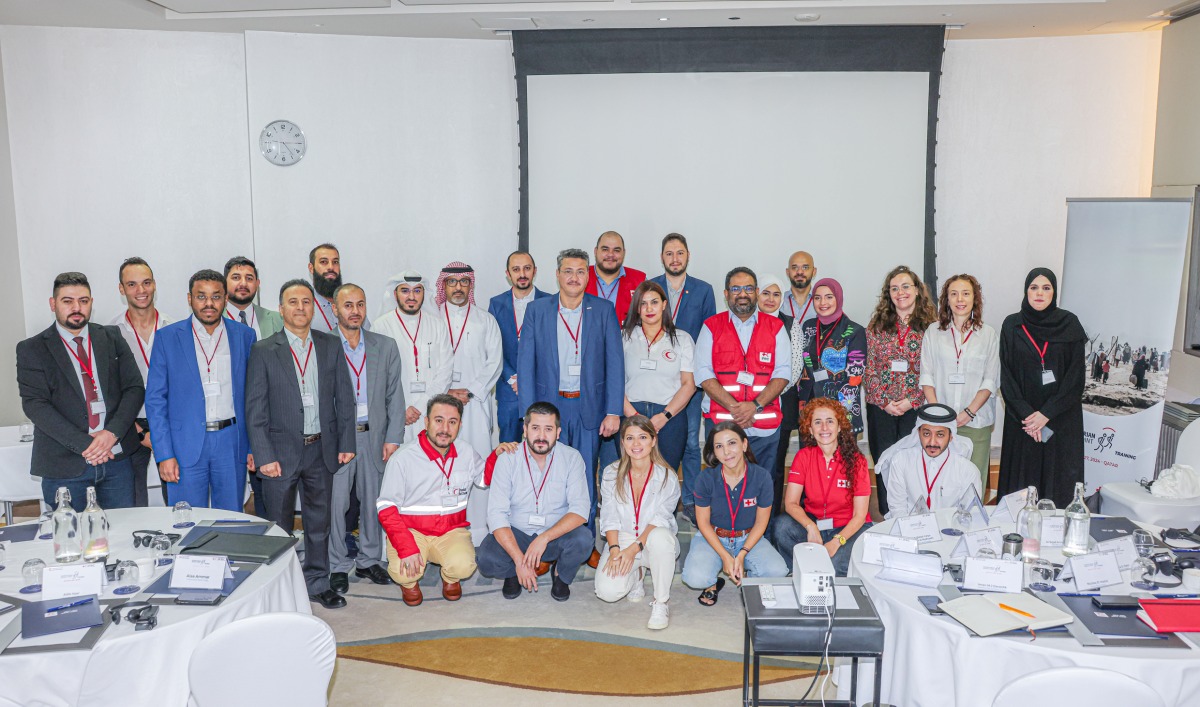The Qatar Red Crescent Society (QRCS) and the International Federation of Red Cross and Red Crescent Societies (IFRC) recently co-organized the 1st Training of Trainers (TOT) Workshop on Humanitarian Service Points (HSPs) in Doha, Qatar. The workshop brought together 20 participants from 10 National Societies in the Middle East and North Africa (MENA) region, including the Libyan Red Crescent, the Iraqi Red Crescent Society, and the Lebanese Red Cross, among others. Facilitators from IFRC, the Italian Red Cross, and the British Red Cross led the five-day event, which aimed to enhance the region’s capacity in emergency support and response to population displacement caused by conflicts and disasters.
The training focused on HSPs as one of the top five capacity-building priorities for MENA National Societies to address migration and displacement waves. Participants engaged in discussions on various topics, such as the formation of a regional group of migration coordinators, understanding IFRC’s support systems and emergency procedures for migrants and IDPs, and capacity-building of focal points to strengthen resources within National Societies. The workshop also emphasized the importance of the Emergency Additional Capacity Team as a vital component of National Society response to population movements.
Subhi Fahad Al-Ejjeh, Head of Relief and Disaster Management at QRCS, highlighted the significance of addressing the humanitarian aspect of migration in the region, given the complexities arising from natural disasters, armed conflicts, and climate change impacts. He expressed QRCS’s commitment to coordinating training activities with IFRC to enhance regional resources and expertise in disaster response. Dr. Hosam Faysal, Regional Head of Health, Disasters, Climate, and Crises Unit at IFRC – MENA, emphasized the workshop’s role in reaffirming the humanitarian network’s commitment to assisting IDPs, host communities, and National Societies in meeting their needs, in line with the 2030 Joint Strategy to ensure safety, humane treatment, and dignity for migrants.
Overall, the workshop provided a platform for participants to exchange theoretical knowledge and practical scenarios related to the design and operation of HSPs. By sharing experiences and insights, the National Societies in the MENA region gained valuable skills and insights to better respond to migration and displacement challenges. The training also sought to equip participants with the necessary tools and resources to strengthen their capacity in emergency support and response, particularly in the face of increasing population movements caused by conflicts and disasters. The collaborative efforts of QRCS, IFRC, and other key partners underscored the importance of building a network of skilled professionals to address the evolving humanitarian needs in the region.





















